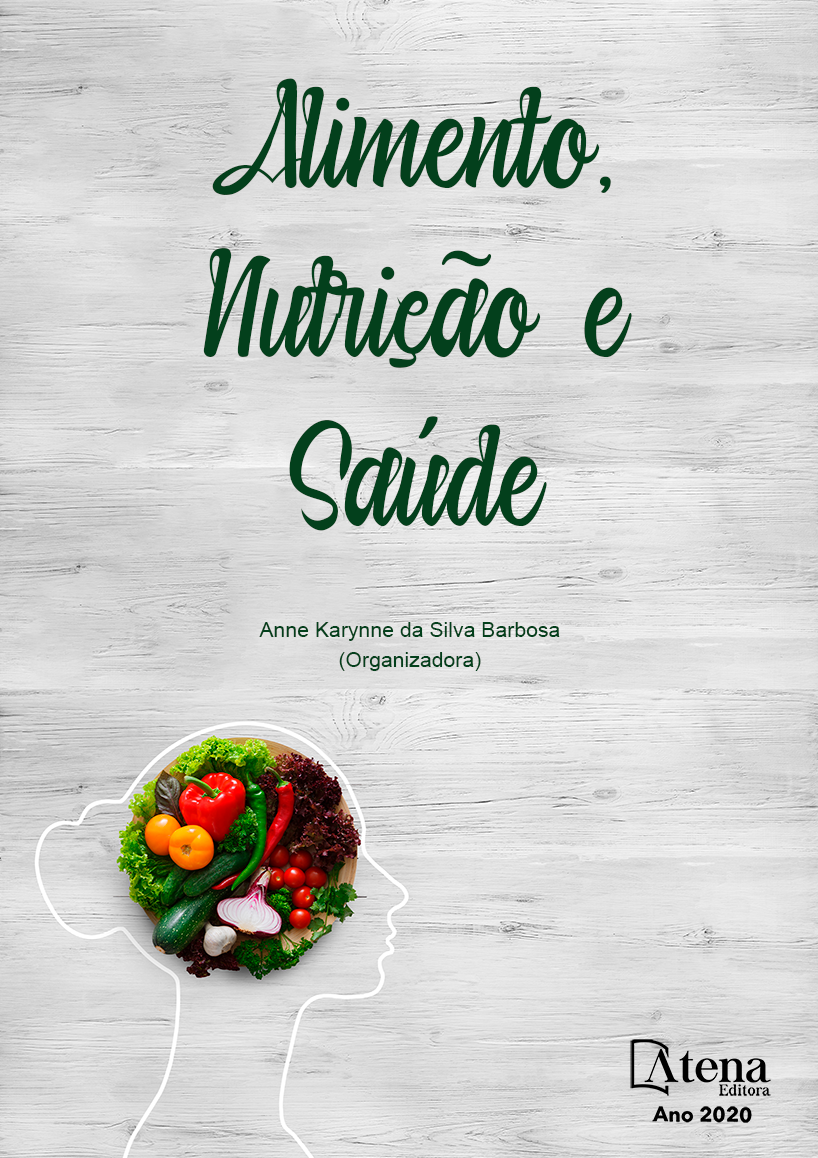
PROGRAMA DE ALIMENTAÇÃO DO TRABALHADOR: IMPORTÂNCIA DA EDUCAÇÃO ALIMENTAR E NUTRICIONAL NA MELHORIA DOS HÁBITOS ALIMENTARES
O Programa de Alimentação do Trabalhador (PAT) objetiva a manutenção da saúde e melhora dos hábitos alimentares através da oferta de refeições adequadas do ponto de vista quantitativo e qualitativo durante a jornada de trabalho, que corroboram com redução do absenteísmo, riscos de acidentes de trabalho e melhoria da produtividade laboral. Segundo a portaria do PAT, as ações de Educação Alimentar e Nutricional (EAN) são práticas que consolidam os objetivos do programa. Dessa maneira, o objetivo do presente estudo foi de gerar perante trabalhadores de uma UAN a prática voluntária de escolhas alimentares e porcionamento adequado, enfatizando as recomendações nutricionais do PAT e, corroborando assim com os objetivos do programa. Trata-se de um estudo transversal, observacional realizado em um hotel, localizado em uma capital nordestina, onde foi efetivada a ação de Educação Alimentar e Nutricional durante a Semana Interna de Prevenção de Acidentes no Trabalho (SIPAT). Mediante a supervisão da distribuição do almoço, sob observação direta do porcionamento de carnes (self-service) executado pelos funcionários da UAN, foi possível realizar a estimativa média de cálculo NdPCal% das refeições/almoço consumidas pelos colaboradores que foi de 10,72%, sendo 10,07% pelo consumo de carnes. Na semana seguinte a realização da EAN, pode-se observar que alguns trabalhadores melhoraram a composição do prato, diminuindo a quantidade de proteína animal e adicionando hortaliças.
PROGRAMA DE ALIMENTAÇÃO DO TRABALHADOR: IMPORTÂNCIA DA EDUCAÇÃO ALIMENTAR E NUTRICIONAL NA MELHORIA DOS HÁBITOS ALIMENTARES
-
DOI: 10.22533/at.ed.89020100820
-
Palavras-chave: Acidentes de trabalho. Alimentação coletiva. Educação Alimentar e Nutricional. Programas e Políticas de Nutrição e Alimentação.
-
Keywords: Accidents at work. Collective feeding. Food and Nutrition Education. Nutrition and Food Programs and Politics.
-
Abstract:
The worker feeding program (PAT) aims at maintaining health and improving eating habits through the provision of adequate meals from a quantitative and qualitative point of view during the working day, which corroborate with a reduction in absenteeism, risks of work accidents and improvement in labour productivity. According to the PAT ordinance, Food and Nutrition Education (EAN) actions are practices that consolidate the programme's objectives. Thus, the objective of the present study was to generate before workers of a UAN the voluntary practice of food choices and adequate portioning, emphasizing the nutritional recommendations of PAT and thus corroborating the objectives of the program. This is a cross-sectional, observational study carried out in a hotel located in a northeastern capital, where the Food and Nutrition Education action was carried out during the Internal Week for the Prevention of Accidents at Work (SIPAT). Through the supervision of lunch distribution, under direct observation of the meat portioning (self-service) performed by UAN employees, it was possible to make the average NdPCal% calculation estimate of meals/lunch consumed by employees, which was 10.72%, 10.07% for meat consumption. In the week following the EAN, it can be observed that some workers improved the composition of the dish, reducing the amount of animal protein and adding vegetables.
-
Número de páginas: 12
- Karolaynne Shayanne Alves Jacinto
- Giane Meyre de Assis Aquilino
- Mirelly Raylla da Silva Santos
- Eliane Costa Souza
- Deborah Maria Tenório Braga Cavalcante Pinto
- Fabiana Palmeira Melo Costa
- Bruna Cavalcante Figueira


